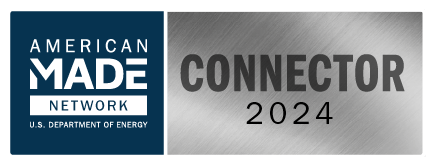Curious consumers, have you ever wondered what happens to your recycled waste after your bins are collected? Chances are, despite your attempts at recycling, those items are ending up in landfills anyway. This is a frustrating discovery for those of us trying to do our small parts when facing climate change.
Entrepreneur Richard Park felt that frustration and decided to take action. His target? The cannabis industry’s medical and recreational PP5 plastic packaging, specifically the child-resistant pop tops and amber-colored pill vials, starting in his current home state of Oregon.
“I just was tired of knowing that all of my personal waste was going into the landfills,” Park said of these very common medical packaging bottles that are recyclable, but end up being pollutants because of their small size and the paper labels that deem them unsuitable for recycling. “I knew that they weren’t getting recycled, even if I tried to recycle them and put them in the blue bins and everything else — I knew that they were ending up in landfills anyway. So it was just very frustrating. And then there was a company in Oregon that was doing it for five years.”
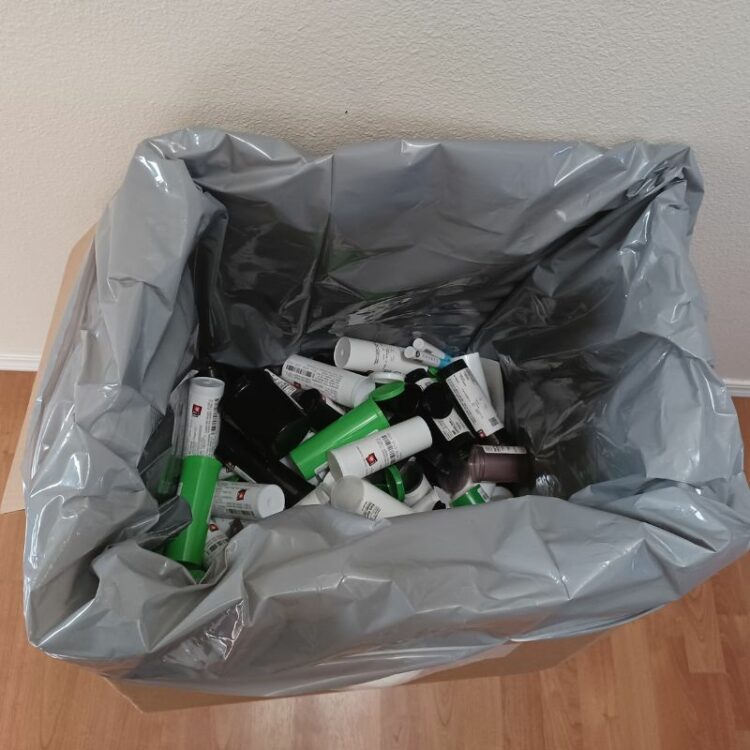
Park pitched the company, P3 Distributing, and offered his ideas to make the cannabis recycling project more cash flow positive. He then partnered with them for collection events after starting his own project — the ReDram Program.
“I won an Oregon Metro Grant to actually expand my collection event and I worked with them [P3 Distributing] to do so; we did 82 shops in Portland this past April, and collected 2,500 pounds of plastic in 30 days. The shops typically average around 500 pounds per month” Park said.
One of the projects connected to his ReDram program that Park has put a lot of particular energy into is his 420 for Earth Day event. It started as a community-facing endeavor where Park negotiated with his local retailers to offer customers a discount if they brought in a recyclable. 420 for Earth Day has since evolved with the partnership of P3 Distributing. Now, it’s a contest between dispensaries to see who can collect the most PP5 plastic waste with the winning company receiving free shipping on their dispensary supplies through P3.
The ReDram Program itself, however, is a kiosk process that recycles and de-labels the recycled packaging and includes everything through making sure the materials go to the end markets. Not only does the process ensure these items are actually recycled, but the kiosks themselves allow cannabis retailers access to more accurate data on their participation in recycling PP5s and the environmental impacts they’re contributing to. This information is both critical to these shops for reporting purposes due to environmental regulation requirements and a better system than the current one in place where it’s more difficult to measure real numbers of the pollutants these shops are preventing.
“Shops and dispensaries currently have over 300 bins in retailers across Oregon and they use a cardboard box with a plastic liner that looks like a garbage can.” Park added, “They collect around 3,500 pounds [in those bins], and out of that 3,500 pounds usually like 1,000 or close to 1,000 of it is just pure waste — like trash. So, my kiosks’ function is to eliminate that by not looking like a garbage can for starters, and then secondly it’ll have signage above it to let people know what goes in and what doesn’t go in.”
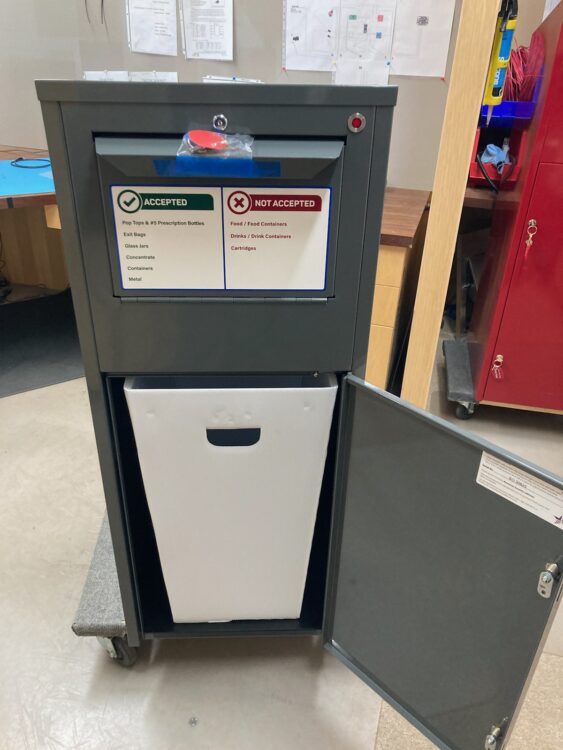
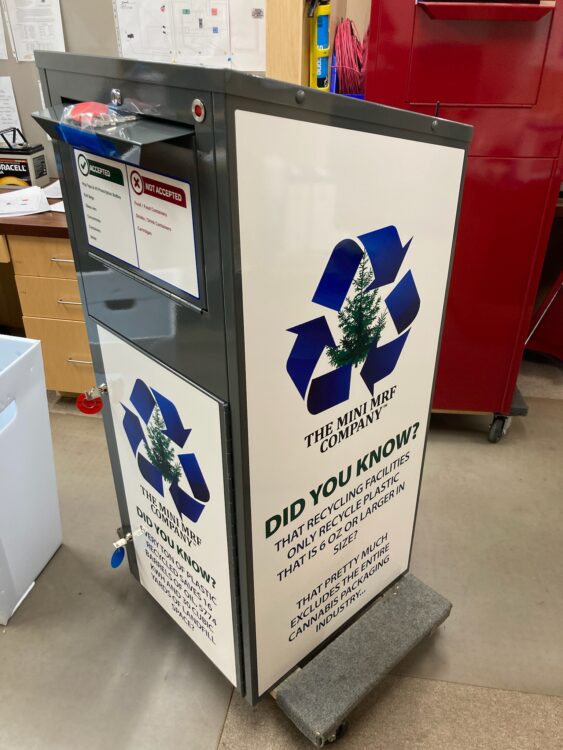
Park introduced the ReDram Program collection kiosks at the New York State Cannabis Festival on June 17, 2023 during his talk about the difference between recycling and wishcycling. The latter being the exact misconception that led Park to this business venture among the recycling and cannabis industries.
“They’re ready to roll out as soon as I start signing retailers up,” Park commented. “While New York doesn’t have a large number of retailers yet, this event is a great opportunity to let the current and potential retailers know that we have a turnkey solution for their sustainability programs – something that they’re required to have when submitting an application for licensing — and that’s in the OCM [New York state’s Office of Cannabis Management] regulations.”
When it comes to why he’s hoping to bring his program to New York, Park said, “Ideally because [of] the population and the amount of people. I’m from New York, I know how many cannabis users there are here and know how polluted the streets can get. This is an issue that needs to be addressed while the industry is fairly new — I mean, if you walk the streets of Manhattan right now you’ll encounter people smoking on just about every block. The current behavior is to throw the packaging or container in the garbage or on the ground. An additional challenge is to educate the consumers about our solution that is transparent and actually works. Like I said, our intention is to recycle up to 80 or 90 percent of what we collect — whereas the current recycling recycles only like nine percent of the plastic worldwide.”
Not only is Park from New York, but he’s also a current virtual member company at Binghamton University’s Koffman Southern Tier Incubator and a graduate of the incubator’s Opportunity Grows (OG) Cannabis Accelerator. When asked about finding the program, Park laughs about finding his business mentor Eric Krohn at the Koffman through the accelerator and joked about each of them being “foolish” for responding.
“For me, personally, as a single founder, it’s been great to have them [the Koffman team] as a resource and speak to them and share my trials and tribulations, and my fears and also my aspirations,” Park said about working with the Koffman. “To speak and bounce off the people who’ve actually been successful and know about start-ups and entrepreneurs, and the challenges most of us face day-to-day — that has been invaluable. I’ve been lucky and fortunate to have them to help me shape my company and get it off the ground. It’s accelerated my process and I’ve certainly gotten connections and opportunities that I wouldn’t have been able to on my own.”
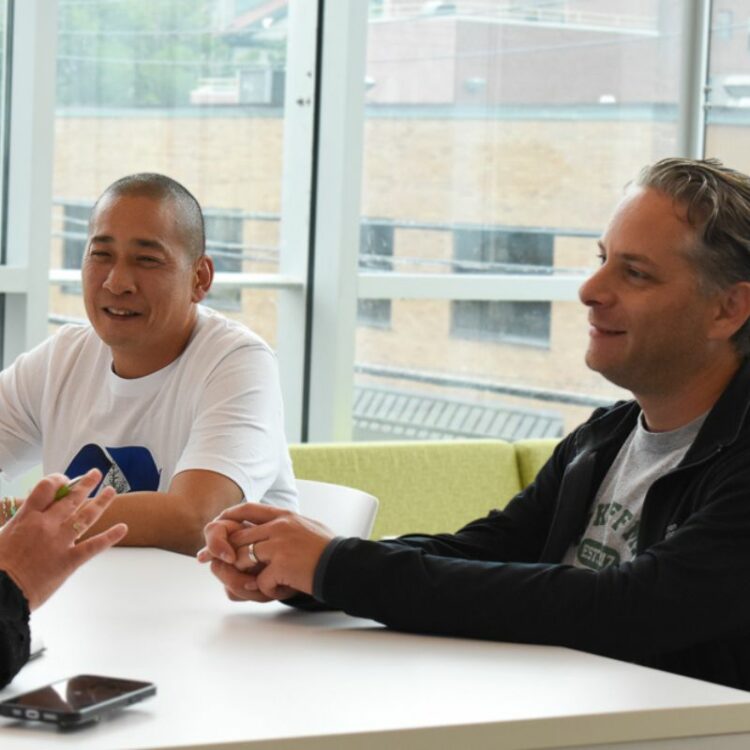
“When the Koffman Incubator decided to create the OG accelerator, our hope was that we would find innovators willing to help shape the cannabis business in a profitable and positive fashion. One such innovator was, and still is, Rich Park,” Krohn, who is also director of business incubation programming at the Koffman, said. “Rich saw a problem with a massive amount of PP5 plastic, used in containers, being thrown away and decided to find a solution. Over the past year Rich has won multiple grants, spoken nationally on recycling, won pitch competitions and is now setting up shop in three states. Rich has embodied the spirit of entrepreneurship and has matched it with hard and unwavering work.”
While progress is being made in the recycling industry through the new Recycling Modernization Acts, Park mentions that the cannabis industry is being left out of those updates and conversations. This fact is where his focus on cannabis, as opposed to other plastic products, came from.
“I knew the cannabis industry wasn’t going to be addressed, they are only focusing on plastic that’s six ounces or larger, and pretty much everything in cannabis is six ounces or smaller,” Park said. “That’s the exact reason why, because I know that they’re not addressing it. I’ve definitely seen an attitude change toward recycling. People are more and more concerned about cannabis packaging recycling, it’s certainly been a hot topic in the general cannabis industry. But again, it’s not hot enough for regulators and decision-makers to actually make any moves or anything like that — and that is the issue, trying to convince those in charge to actually take action.”
Even with his passion and focus aimed at recycling within the cannabis industry, he does see room for growth in other industries when it comes to how plastics are currently being recycled. He’s even hoping to one day expand into the pharmaceutical industry.
“That whole drug take-back program is funded by the pharmacies,” Park noted, “so something like that, that’s already well funded could certainly go a long way. They have data on how much is collected and how much is burned, but they don’t tell you how much of it is plastic and how much is medicine. What we would love to do is separate the medicine and the plastic and be able to really get them to give them real numbers and be like, hey you guys burned x amount of pounds of medicine and we saved x amount of tons of plastic.”
Looking at the legalities connected to recycling, Park does hope for a shift in both lawmakers’ and the recycling industry’s focus. In fact, he’s committed to laying the groundwork for if or when that does happen.
“There [are] much bigger plastic issues than cannabis right now and that’s where the big waste recyclers [are] going to focus on first. So, to be proactive and have something out there, already in place, when they do decide to turn their attention towards cannabis is again being ahead of the game and giving them something that they can really work with.”
Park notes the difference in New York state laws compared to other states with legal cannabis use, which he believes are headed in the right direction. Specifically about New York state, he said, “They are one of the very few that actually have requirements for retailers to submit a sustainability program — whether it’s using recyclable packaging, or they can’t use single-use plastic or if they do it has to be at least 25 percent PCR which is recycled plastic… Those goals are pretty high and they’re pretty far-reaching, I don’t know if they’re going to be fulfilled but it’s a good start.”
As for what comes next for both Park and the ReDram Program, that largely depends on a variety of factors; including sales of the kiosk, updates to the recycling industry, what new laws are created at the local, state and federal levels, and more. Still, Park has a plan.
“What’s next is to do a successful product launch with a goal of 200 units out [in retailers and dispensaries], and start collecting some really good data,” he said. “Followed by subsequent fundraising ReDram will be able to expand to multiple markets and change the face of the recycling game.”
Even with this plan in place, Park hopes others will join in the cause and help create a better planet through these and other recycling efforts.
“This is garbage, ultimately I’m not looking to fight over it,” Park commented. “If there are other companies and people want to join and learn how to do it, in a different part of the world or even the same part of the world, I’m down. It’s less work and we’re never going to run out of it. There’s always going to be plenty of garbage, so there’s plenty for everybody. The more the merrier — I can’t do it by myself honestly, it does take a village.”
Keep up with news from Koffman member companies by joining our mailing list today!


